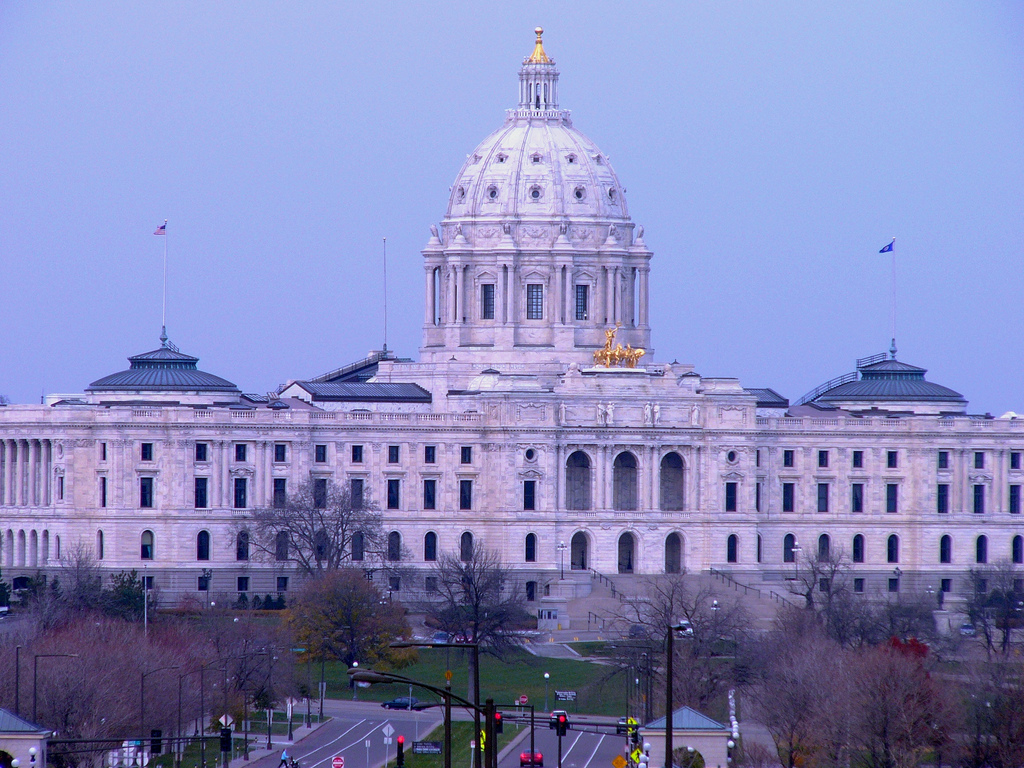
On Tuesday, January 3rd, legislators from across the state gathered in St. Paul at the newly renovated Capitol to convene the 2017 legislative session. The freshly polished chandeliers and beautifully restored works of art aren’t enough to distract from the outcome of the past two sessions that left many Minnesotans weary of our state government and doubtful of their ability to work together to pass policies that benefit the people of Minnesota.
As Governor Dayton enters his final two years in office, he’ll release his budget proposal based on the recent economic forecast that shows a $1.4 billion surplus. The legislature will be focused on passing a two-year state budget by the deadline to avoid a government shutdown. We also expect that landmark environmental laws and policies like the nuclear moratorium, clean energy standards and the Minnesota Environmental Policy Act will be in jeopardy.
It has never been more important for those who value our environment and public health to send a strong message to our decision makers. We need our legislature to prioritize policies that advance clean energy and job creation, and strengthen Minnesota’s environmental and public health protections. Here are some of our 2017 priorities, many of which build on past successes:
In 2015 we helped pass the Firefighter and Children’s Health Protection Act, which banned four of the most toxic flame retardants from upholstered furniture and children’s products. Chemical flame retardants that are routinely added to furniture and children’s products provide little to no added fire protection and unnecessarily expose firefighters and families to harmful chemicals that can cause cancer and reproductive health problems, and impact learning and development. Firefighters who already put themselves in danger should be protected from further occupational exposure to flame retardants that contribute to increased cancer rates. This session, we’ll continue our work to increase the number of toxic flame retardants banned from upholstered furniture and children’s products in Minnesota.
During the 2015 and 2016 legislative sessions we helped pass funding for the University of Minnesota’s Forever Green Initiative. Forever Green is composed of teams of researchers, farmers, food product developers, and entrepreneurs whose goal is to develop and promote the use of new winter annual and perennial crops that enhance water and soil quality. Integration of these crops can also provide healthier soil, pollinator forage, and habitat while enhancing rural communities by creating new industries based on renewable agricultural resources. This session, we’ll work to provide further funding because; Minnesota can have both a successful agricultural economy and clean water!
Last session, we educated the legislature about the increasing evidence that waste tire material being used on children’s playground surfaces and athletic fields in unsafe. Tested waste tire material has been found to contain toxic chemicals such as, polycyclic aromatic hydrocarbons (PAHs), volatile organic compounds (VOCs) and a number of other chemicals known or suspected to cause adverse health effects. Due to the distinct need for further testing to determine potential health effects, this session we’ll work to pass a moratorium on the use of waste tire material for any new construction of playgrounds and athletic fields until findings are released from studies that are currently being conducted by a number of environmental and public health agencies. When it comes to the safety of our children, decision makers must take a precautionary approach.
We will also pursue a policy this session that requires manufacturers to disclose the ingredients used in cleaning products. Ingredient disclosure is mandatory for food and drugs – but not cleaning products, thus leaving consumers in the dark. It is crucial that consumers who want to consider chemical exposure can access transparent information when purchasing products for themselves and their families.
We expect we’ll face significant threats to existing protections and pursuing pro-active policies will be an upward climb. However, with strength in numbers we can fight for what will benefit our water, environment, and public health. But we need to keep you informed so that you can help be part of the solution. Subscribe to our email list for updates on these legislative goals and opportunities to make your voice heard.


